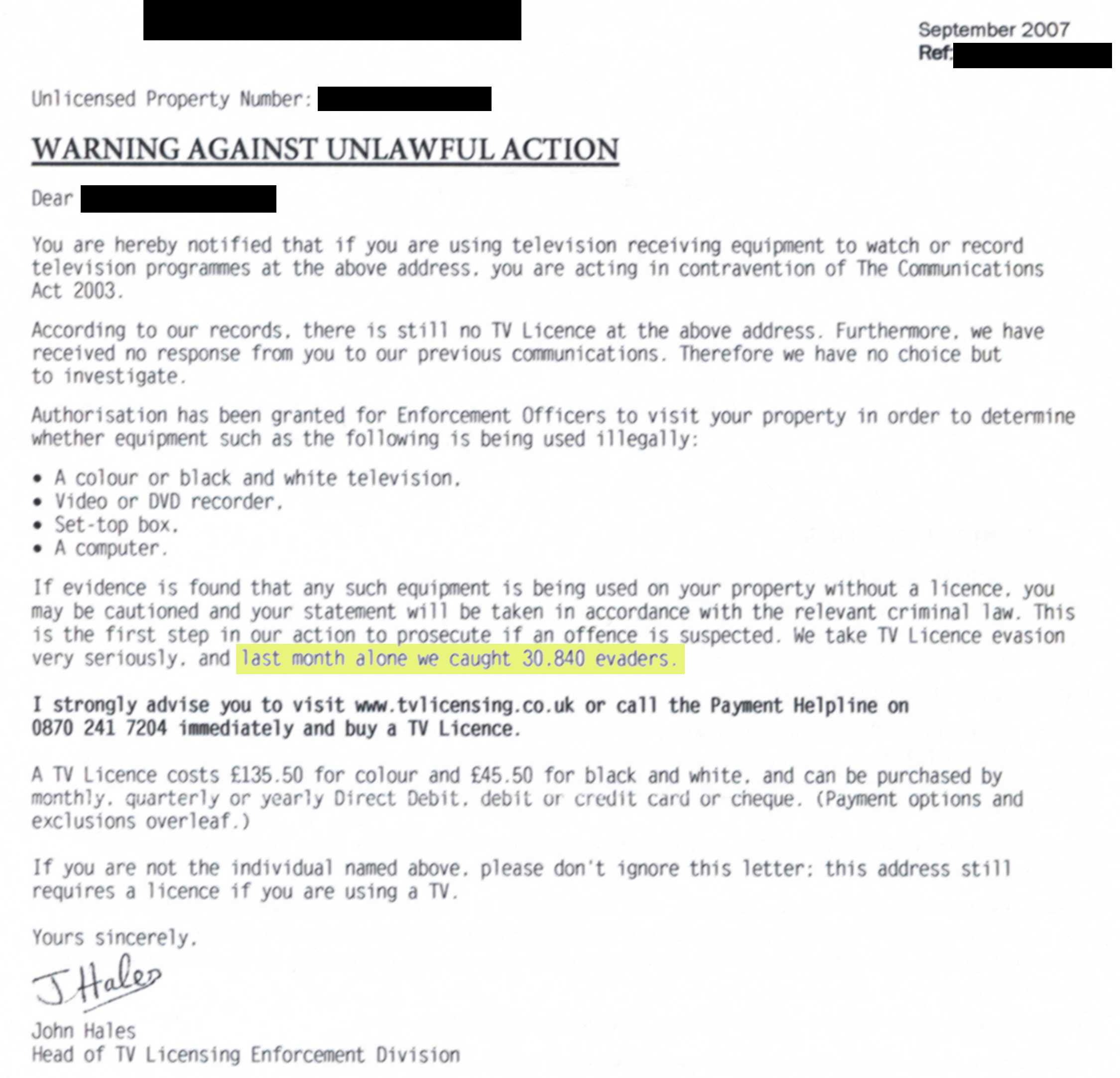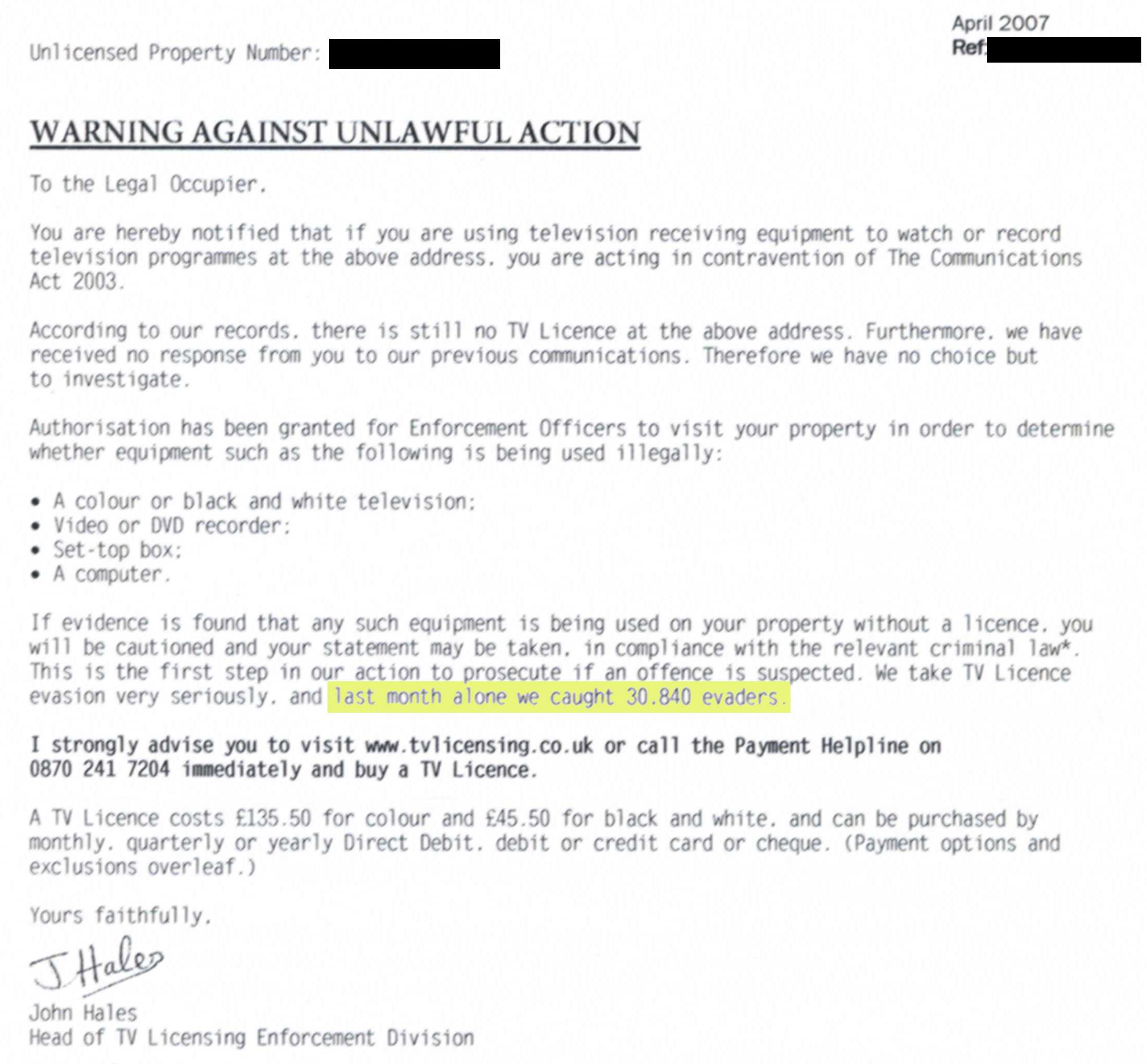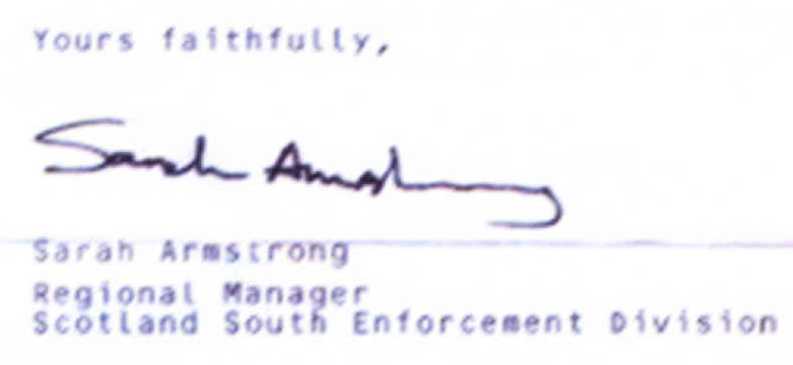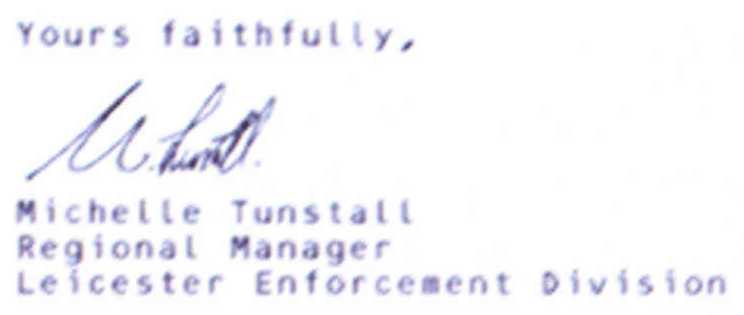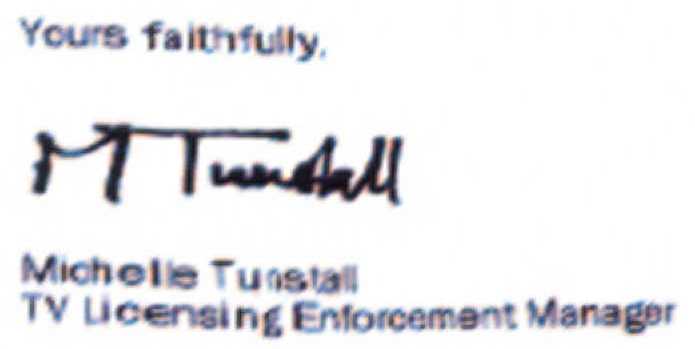|
TVL/BBC's fake detection figures and bogus
signatures TVL/BBC's letter to me of September 2007, signed by
Enforcement Manager John Hales, declares that "30,840 evaders" had been caught
the previous month. Here is the letter, dated in the top-right corner, with the
relevant paragraph highlighted:
The figure of 30,840 sounded familiar to me, so I
examined Mr Hales' previous letters. I found that his April 2007 letter also
said that 30,840 evaders had been caught the previous month, i.e. March
2007:
What TVL/BBC has done is to reproduce the same letter,
complete with same content, in two different months. This means that the 30,840
figure in the September letter is untrue. The figure may also be untrue in the
April letter.
It may be the case that TVL/BBC does not
think that the figures matter; any old figure will do. But it does matter,
because Mr Hales is purporting to be making a statement of fact.
Example 2
The next two letters have come to my attention from
this
website which also has a selection of BBC/TVL letters. Again signed
by Mr Hales, one is dated July 2006 and the other September 2006; each claims
that the previous month's capture rate was 33,781
people:

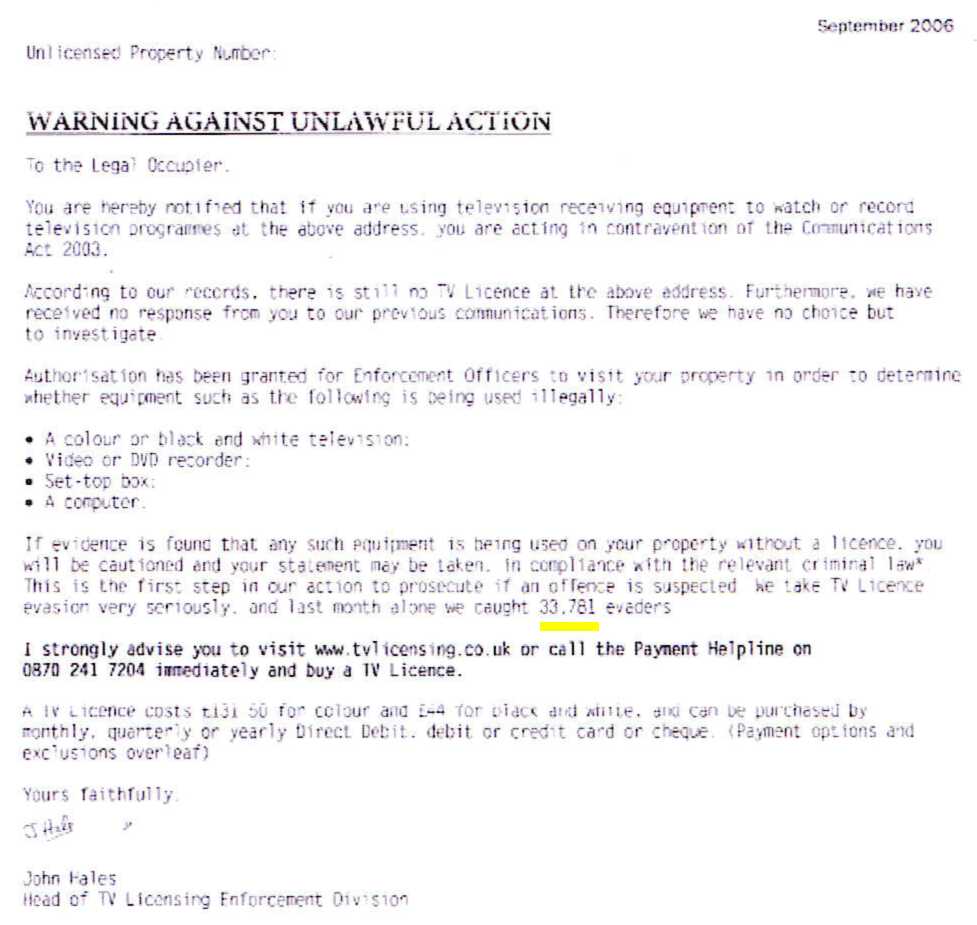
Example 3 (provided by
Swissguard)
The following two letters show different figures for the
same area and period. The first letter, dated August 2007, says the
average annual evasion rate for Scotland South is 70,888; yet, the December
letter gives it as 44,313:


The letters are not from John Hales, but from one Sarah
Armstrong, signifying that lying to the public is not confined to one
individual but is practiced across the BBC.
Some
people regard the BBC's use of bogus detection figures as humourous; I do not
agree. If a chief constable claimed detection rates which he knew to be false,
it would be a resigning matter. If a private company used fake sales figures to
encourage sales, it would be a breach of trading standards law.
I quote the
BBC Trust from 18 July 2007: "The Trust has … made clear that we regard
any deception or breach of faith with our audiences as being utterly
unacceptable" (link). Yet, the BBC lies to non-viewers every month.
|
Update May 2008: since uploading the above two letters by Sarah
Armstrong, I have been forwarded a letter, dated April 2008, in which she has
an entirely different signature:
While on the subject of falsified signatures, here are two from
Michelle Tunstall, dated September 2004 (left) and March 2008.
Val Smith of Customer Services changes her signature yearly; here it
is for 2002, 2003 and 2004:
And not forgetting John Hales, pre-March 2008 and post-March
2008:
Update August 2008: I have today been sent the following two
signatures, both purportedly of a Paul Stanfield, dated January and August
2008:
 |
|
0844
and 0870 telephone lines
The following is a letter from TVL/BBC to the Herald
newspaper, June 28 2008. I underline certain words to assist
interpretation:
"I'd like to reassure your readers that we have no wish
to trouble people who genuinely do not require a TV licence. It is,
however, our duty to enforce the law on behalf of the honest majority who pay
the TV licence. Unfortunately, if a licence is required, some people will only
buy one when warned of the consequences of being unlicensed. It is for this
reason that some of our mailings contain messages that are designed to deter a
possible evader. However, we don't presume that everyone is guilty of
committing an offence, and we do try to ensure that non-viewers are not
overly troubled by our inquiries. We would, therefore, urge Robert Bell
or his mother to contact us on 0844 800 5870 if she is still receiving
incorrect mailing so our records can be kept as up to date as possible,
minimising future contact with her.
Fergus Reid, TV Licensing, 226 West
George Street, Glasgow"
Aside from the disingenuous use of language, the letter
has two points worthy of comment. First, the address 226 West George Street,
Glasgow does not come down to "TV Licensing" or the BBC. A search on Google
shows that many companies use this address, so it appears to be a relay
address.
Second, the letter "urges" contact via an 0844 number, designed to
create revenue for the BBC. In response to criticism in May 2008, a TVL/BBC
spokesman said: "If we provided free phone calls, less money would go to BBC
programmes and services". In other words, people who do not need a licence
are instead expected to provide the BBC with money via premium phone lines.
|
|

